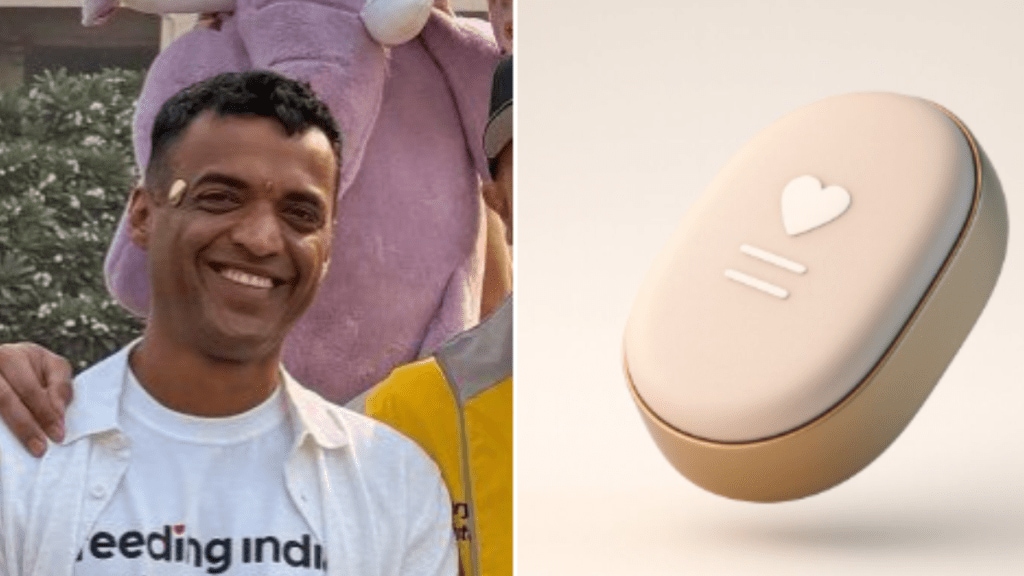Zomato chief executive Deepinder Goyal appears to be gearing up for his next consumer tech experiment, and this time it isn’t food delivery but a brain health wearable.
Over the past week, Goyal has found himself at the centre of an online frenzy after posting photos from a FeedingIndia school visit. In one of those images, a small, gold, metallic object clipped near his right temple set off immediate speculation across social media platforms. Users joked about Infinity Stones, anti-gravity brain sensors and mysterious health chips, prompting Goyal himself to quip, “This could very well be the infinity stone.”
The joke didn’t last long. Two days later, Goyal confirmed that the object was indeed a prototype device built to measure ‘Brain Flow’, a metric he calls a key biomarker for ageing, longevity and cognition. He said he has been wearing the device for a year, and that it emerged from internal research his team conducted for what he calls the ‘Gravity Ageing Hypothesis’, the idea that gravitational pull reduces blood flow to the brain, accelerating ageing.
The makings of a new brand: Temple
Much of the online buzz was stoked by a LinkedIn post from user Shubham Mishra, who shared Goyal’s photo and suggested the device could be the prototype for a new health-wearable brand. Temple, he proposed, would be an apt name, given the device’s placement.
Goyal didn’t reject the idea. In fact, he hinted that the project is very real. “While conducting research on the Gravity Ageing Hypothesis, we had to make an experimental device to calculate Brain Flow accurately, in real-time, and continuously,” he wrote. “I’ve been feeling that this could shape into an important wearable the world needs.”
He added that even if his gravity hypothesis turns out to be wrong, the device remains relevant because brain blood flow is already an accepted correlate for ageing and cognition.
Goyal described Temple as a “small, cute company, if at all,” making it clear it won’t be positioned as a mass-scale business like Zomato or Blinkit. But the messaging, deliberate or not, has already triggered a wave of interest around what a brain-health wearable from a high-visibility founder would look like.
The hype, the backlash, the narrative
Dr Cyriac Abby Philips, better known as The Liver Doc, publicly dismissed the “gravity ageing” concept as pseudoscience and called the device a likely precursor to a “cranky longevity intervention” marketed to “gullible people.”
Goyal further added that he didn’t make up things in order to sell the product. “We didn’t cook up the Gravity Ageing Hypothesis to sell Temple,” he wrote. “Not my game to lose the trust of our customers over a marketing gimmick.”
Despite the pushback, the conversation has achieved something rare: a pre-launch consumer recall for a product that doesn’t formally exist yet. The device, its metallic aesthetics, the name ‘Temple’, and the CEO’s own cryptic posts have collectively created a brand aura before the brand officially launches.
One thing has become very clear: Deepinder Goyal has been successful in creating hype and getting the whole internet to talk about a brand that has not been launched with just a few LinkedIn posts.
